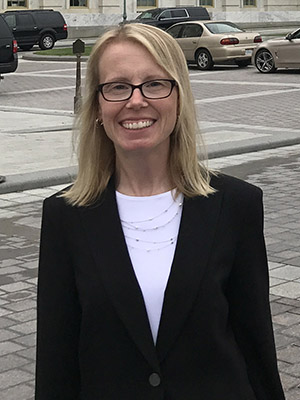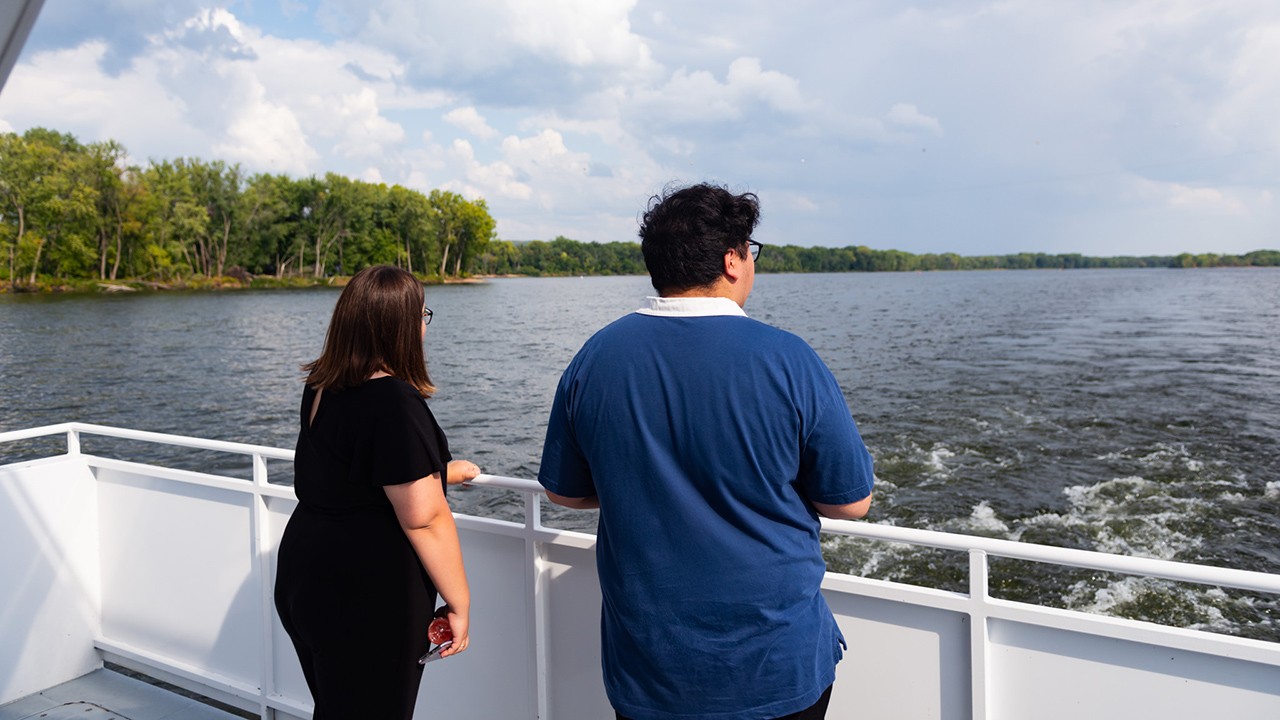Meet Dr. Candace Kairies-Beatty, a professor in the Geoscience Department at Winona State University.
Dr. Kairies-Beatty was selected for a prestigious fellowship, giving her the opportunity to work on an environmental justice policy through the Biden-Harris Administration.

Who Is Dr. Kairies-Beatty?
Dr. Kairies-Beatty joined WSU back in 2007 initially thinking it would be a short stay.
But she was so impressed by all of Winona’s natural resources and the Geoscience degree program that she has been teaching at WSU ever since.
During her senior year as an undergraduate, she discovered her passion for geoscience when she took a geology class.
Geology immediately “clicked” for her and just made sense, making her realize that she wanted to be a geologist.
Dr. Kairies-Beatty enjoys that geology intersects with many other areas of science.
In her role, she needs to know not only geology, but also chemistry and biology. She likes that she has the ability to meet and work with all sorts of people from different scientific fields.
Fun Facts:
- Dr. Kairies-Beatty and her husband adopted two retired racing greyhounds.
- She can double roll her tongue.
- During college, she used to write for an alternative music newspaper, having the opportunity to go to lots of concerts, interview bands, and review newly released music.
What Is She Doing in This Fellowship?
Dr. Kairies-Beatty was selected for the Science & Technology Policy Fellowship through the American Association for the Advancement of Science (AAAS).
It also allows rising leaders from a wide range of workplaces to immerse themselves within the U.S. Congress and learn more about policymaking to better address societal issues.
For example, Dr. Kairies-Beatty is currently working on the Biden-Harris Administration’s Ocean Justice Strategy (PDF). This policy aims to:
- put environmental justice principles at the forefront of federal ocean initiatives.
- consider and incorporate Indigenous Peoples’ voices into ocean research and decision-making.
- boost ocean education opportunities to foster a diverse and inclusive ocean workforce.
With her geoscience background, Dr. Kairies-Beatty is contributing important work to this policy by connecting the well-being of U.S. oceans and lakes to the well-being of surrounding ocean communities.
“Never in a million years did I think I would be working for the Office of Naval Research,” she adds.

What Has Dr. Kairies-Beatty Taken from This Experience?
Dr. Kairies-Beatty is proud that she has been able to complete this fellowship in addition to being a professor. Contributing to policy and research that’s outside both her comfort zone and area of expertise has been very rewarding.
Through the her work in the Office of Naval Research, Dr. Kairies-Beatty has transferred a variety of skills to other areas and met experts ranging from ocean acousticians to physical oceanographers.
Dr. Kairies-Beatty plans to incorporate her fellowship and policymaking experience into the classroom by honing her advising skills. Because of this experience, she will be able to give her students solid advice on how to navigate similar opportunities. She also wants to encourage students to engage more with policymakers.
Dr. Kairies-Beatty believes that although most of her students will become scientists, it’s crucial for them to effectively communicate their work to different audiences.
Regardless if WSU students go on to promote their research to general audiences or to White House representatives, she will help prepare them to be “scientifically engaged as literate citizens.”